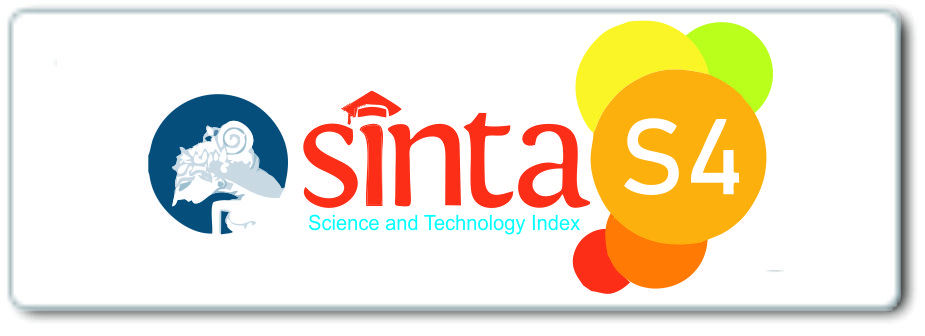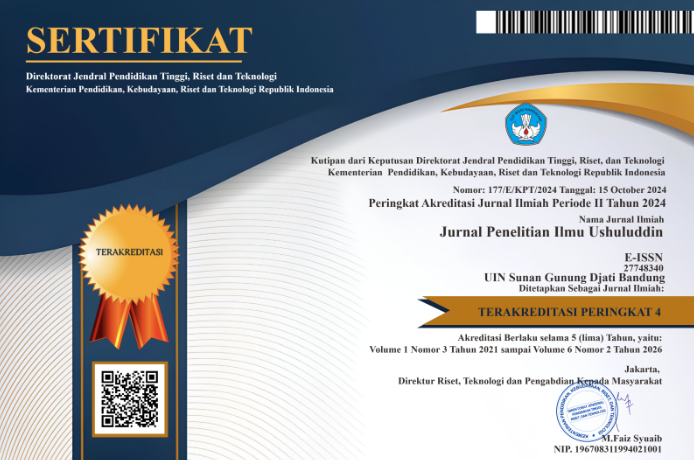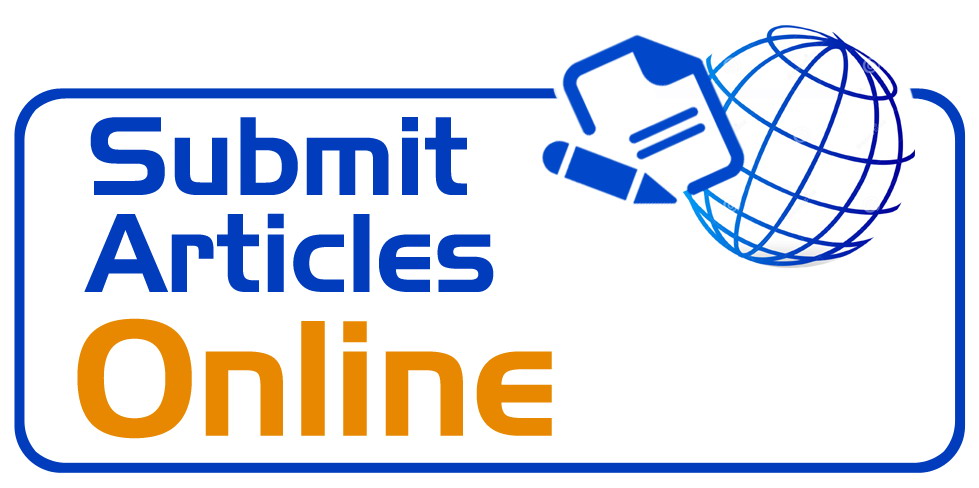Kebahagiaan Menurut Syeikh Ibnu Atha’illah as-Sakandari
DOI:
https://doi.org/10.15575/jpiu.13590Keywords:
Happiness, Heart potential, Library research, Mind potential, MoralsAbstract
The hustle and bustle of the modern era, marked by an easy life, is relatively only able to provide physical pleasure, but is unable to provide physical and spiritual happiness. The phenomenon of life that is not balanced with this level of happiness, causes a void. The purpose of this study was to determine the meaning and ways of obtaining happiness according to Syeikh Ibnu Atha’illah as-Sakandari, as well as its relevance to human life in the modern era. This research is a qualitative research that uses a library research approach. The analytical method used is a content analysis technique. The conclusion of this study, shows that the happiness referred to by Syeikh Ibnu Atha’illah as-Sakandari divided happiness in two dimensions, namely happiness in the World and happiness in the hereafter. Happiness actually exists in human. Happiness will be realized when humans are able to optimize the potential of the mind and the potential of the heart. The path to happiness can be attained by knowing the characteristics of the wordly life and suffering and reducing pleasures. Moral perfections will lead humans to true happiness, namely meeting Allah SWT in a state of faith.References
Abu Hamid al-Ghazali. (2020). Kimiya al-Sa’adah (Mustofa Bisri (ed.); Cetakan 1). Jakarta: PT Qaf Media Kreativa.
Afifudin. (2012). Metode Penelitian Kualitatif. Bandung: CV Pustaka Setia.
Albi Anggito, J. S. (2018). Metodologi Penelitian Kualitatif (E. D. Lestari (ed.); Cetakan 1). Sukabumi: CV Jejak.
Arrasyid, A. (2020). Konsep Kebahagiaan dalam Tasawuf Modern Hamka. Refleksi: Jurnal Filsafat dan Pemikiran Islam, 19(2), 205–220. https://doi.org/10.14421/ref.2019.1902-05
Ashim Ibrahim al-Kayyali. (2018). Al-Lathaif al-Ilahiyyah fi Syarh Mukhtarat min al-Hikam al-Atha’iyyah (M. Tatam Wijaya (ed.); Cetakan 1). Jakarta: PT Qaf Media Kreativa.
Bagir, H. (2015). Risalah Cinta dan Kebahagiaan (II). Bandung: Mizan.
Bertens, K. (2015). Etika (Cetakan 3). Bandung: Kanisius.
Danner, V. (1999). Mistisisme Ibnu Atha’illah: Wacana Sufistik Kajian Kitab al-Hikam (cetakan 1). Risalah Gusti.
Darmalaksana, W. (2020). Metode Penelitian Kualitatif Studi Pustaka dan Studi Lapangan. Pre-Print Digital Library UIN Sunan Gunung Djati Bandung, 1–6.
Dendi Sugono, D. (2008). Kamus Bahasa Indonesia. Pusat Bahasa Departemen Pendidikan Nasional.
Dewi, E. (2017). Konstruksi Kebahagiaan dalam Bingkai Kecerdasan Spritual. Substantia: Jurnal Ilmu-Ilmu Ushuluddin, 19, 133–148. https://jurnal.ar-raniry.ac.id/index.php/substantia/article/view/2881
Gusti Yasser Arafat. (2018). Membongkar Isi Pesan dan Media dengan Content Analysis. Jurnal Al-Hadharah, 17(33), 32–48.
Haidar Bagir. (2006). Buku Saku Filsafat Islam. Bandung: Mizan.
Hamim, K. (2016). Kebahagiaan dalam Perspektif Al-Qur’an dan Filsafat. Tasâmuh, 13(2), 127-150.
Hasib, K. (2019). Manusia dan Kebahagiaan : Pandangan Filsafat Yunani dan Respon Syed Muhammad Naquib al-Attas. TASHFIYAH: Jurnal Pemikiran Islam, 3(51), 21–40.
Ibnu Atha’illah al-Sakandari. (2013). Bahjat al-Nufus (F. F. Bahreisy (ed.); Cetakan 1). Jakarta: Zaman.
Ibnu Atha’illah as-Sakandari. (2003). Bahjah Al-Nufus (C. R. B. A. Cecep Alba (ed.); Cetakan 1). Bandung: PT Remaja Rosdakarya.
Ibnu Atha’illah as-Sakandari. (2013). At-Tanwir Fii Isqaati at-Tadbir (Misbah El-Majid (ed.); Cetakan 1). Surabaya: Pustaka Hikmah Perdana.
Ibnu Atha’illah as-Sakandari. (2018). Syarh al-Hikam Ibnu ath-Thaillah as-Sakandari (Imam Firdaus (ed.); Cetakan 3). Bandung: Wali Pustaka.
Ibnu Athaillah as-Sakandari. (2003). Menjaga Kesucian Kalbu (C. R. B. A. Cecep Alba (ed.); Cetakan 1). Bandung: Remaja Rosdakarya.
Ibnu Athaillah as-Sakandari. (2013). At-Tanwir fi Isqaati at-Tadbir (M. El-Majid (ed.); Cetakan 1). Surabaya: Pustaka Hikmah Perdana.
Ida Rodiah. (2017). Konsep Kebahagiaan Menurut Hamka. UIN Sunan Gunung Djati.
Iman Setiadi Arif. (2018). Psikologi Positif: Pendekatan Saintifik Menuju Kebahagiaan (Cetakan 2). Bandung: PT Gramedia Pustaka Utama.
Jalaluddin Rakhmat. (2009). Meraih Kebahagiaan. Simbiosa Rekatama Media.
Jarman Arroisi. (2019). Bahagia dalam Perspektif Al-Ghazali. Jurnal Studi Agama-Agama Dan Pemikiran Islam, 17(01).
Lilik Ummi Kultsum. (2018). Cobaan Hidup dalam Al-Quran (Studi Ayat-Ayat Fitnah dengan Aplikasi Metode Tafsir Tematik). Ilmu Ushuluddin, 5(2), 107–138.
Ma’ruf, M. (2019). Konsep Mewujudkan Keseimbangan Hidup Manusia dalam Sistem Pendidikan Islam. Jurnal Al-Makrifat, 4(2).
Maryam Ismail. (2019). Hedonisme dan Pola Hidup Islam. Jurnal Ilmiah Islamic Resources FAI-UMI Makassar, 16(2), 193–204.
Mudin, M. I. (2016). Konsep Makrifat Ibnu Athaillah al-Sakandari. Kalimah: Jurnal Studi Agama Dan Pemikiran Islam, 14(2), 156–172.
Muhammad Said Ramadhan al-Buthi. (2020). Al-Hikam al-Athaiyyah: Syarah al-Hikam Ibnu ath-Thaillah as-Sakandari (A. U. Abdurrahman Jufri, Hadiri Abdurrazaq (ed.); Cetakan 1). Tangerang: Pustaka IIMaN.
Muskinul Fuad. (2018). Psikologi Kebahagiaan dalam Al-Quran (Cetakan 1). Yogyakarta: Lontar Mediatama.
Putri, E. W. (2018). Konsep Kebahagiaan dalam Perspektif Al-Farabi. THAQAFIYYAT: Jurnal Bahasa, Peradaban dan Informasi Islam, 19(1), 95-111.
Rusfian Effendi. (2017). Filsafat Kebahagiaan (Plato, Aristoteles, Al-Ghazali, Al-Farabi) (cetakan 1). Yogyakarta: Deeppublish.
Slamet, I. (2018). Konsep Pendidikan Akhlak Menurut Syekh Ibnu ‘Athaillah As-Sakandari dalam Kitabnya al-Hikam. Studi Pendidikan Islam, 18(1).
Sugiyono. (2017). Metode Penelitian Kombinasi (Mixed Methods). Bandung: CV Alfabeta.
Tamami. (2011). Psikologi Tasawuf. Bandung: Pustaka Setia.
Downloads
Published
Issue
Section
License
Authors who publish in Jurnal Penelitian Ilmu Ushuluddin agree to the following terms:
- Authors retain copyright and grant the journal right of first publication with the work simultaneously licensed under an Attribution-ShareAlike 4.0 International (CC BY-SA 4.0) License that allows others to share the work with an acknowledgment of the work's authorship and initial publication in this journal.
- Authors are able to enter into separate, additional contractual arrangements for the non-exclusive distribution of the journal's published version of the work (e.g., post it to an institutional repository or publish it in a book), with an acknowledgment of its initial publication in this journal.
- Authors are permitted and encouraged to post their work online (e.g., in institutional repositories or on their website) prior to and during the submission process, as it can lead to productive exchanges, as well as earlier and greater citation of published work (See The Effect of Open Access).












